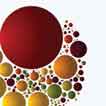Fresh Vision for the Great Commission

Never before has the Church had as much access to missions-related information. Yet, despite this unprecedented access to information, the Church doesn’t seem to be using its resources wisely and effectively.
Both the number of Unreached People Groups and the number of individuals in Unreached People Groups have increased since 2010. Population growth among the unreached and new discoveries in people group distinctions are outpacing the Church’s ability to reach people with the gospel. There are now over 3.2 billion people in Unreached People Groups. Yet, it is estimated that only about 3% of missionaries and 1% of mission finances are being directed to the unreached, that is, those with little or no access to the gospel1.
This vast discrepancy—between the number of people in Unreached People Groups and the allocation of the global Church’s missional resources towards overcoming the barriers that keep them unreached—is what Stratus calls the Great Imbalance. Put simply, the vast majority of missions resources go to places and people that already have access to the gospel as well as some sort of church infrastructure. It is simply easier, often more compelling, more ‘fruitful’ (from the standpoint of return on investment) and more instinctual, to work where the barriers to the gospel are lowest.
Fresh Vision
The Church doesn’t need more knowledge—it needs fresh vision. This fresh vision requires understanding both the global scope of God’s redeeming purposes and the barriers that are currently preventing the Church from carrying out its mission. It is essential that this missional vision affect missions strategy globally, as well as locally. Stratus (stratus.earth/) was created to help provide fresh vision.
In a world where so much information is competing for our attention, Stratus seeks to bring clarity to the vast array of spiritual and physical needs around the world by synthesizing information from 38 disparate data sets (comprising over 200 different indicators) into one comprehensive index. In this way, Stratus promotes a unified vision of bringing the fullness of the gospel of the kingdom to bear on unmet physical and spiritual needs, especially when they go hand in hand.
While information on the spiritual needs (gospel access, people group and language data) and physical needs (systems of governance, developmental needs, social causes and natural barriers) exist separately, Stratus seeks to convey how these sets of needs are often closely related, better equipping the Church to make sense of them within the broader context.
By combining various information sets at the country level, Stratus allows the user to make meaningful comparisons in terms of relative need. Status seeks to help the Church to see themselves as God’s means in overcoming those barriers and meeting those needs. Stratus also provides the ability to easily sort and filter the information according to the abilities, interests, resources and assets that individuals or churches might possess, bridging the gap between the Church’s vast resources and the specific needs of individual countries and people groups.
Where are the areas of gospel access, and where are the voids? Where are developmental needs, like access to education, healthcare or economic opportunities and where is relative strength? Where are high natural barriers, like rugged terrain or a lack of infrastructure, or where are political instability, oppression and war most preventing physical and spiritual needs from being met? What countries are most affected by the intersection of all of these needs?
Stratus seeks to provide concise, up-to-date and visually compelling answers to shift the conversation away from “What can I do?” to “What is it going to take?”
Clarifying Presentation
We want the Church to be able to clearly see how countries rank according to each category and indicator, for example, to see how a country might be ranked seventh overall, 16th in spiritual needs, 66th in developmental needs and 105th in economic opportunity.
All of the data is taken from reputable, pre-existing and routinely updated sources, allowing the data to speak for itself. Even the prayer points listed for each country are derived directly from the country’s lowest-scoring data points.
Informed Strategy
We are hopeful that this tool will become a unifying platform for the Church to use in many capacities, from impacting the way individuals pray for the specific needs of certain countries, to the ways in which the global Church is able to more effectively leverage its assets and strengths to meet the most urgent needs and overcome the most insurmountable barriers. Our goal is to see the global Church better equipped, and ultimately, the Great Commission realized through the rectification of some of the systemic forces that perpetuate the Great Imbalance.
Stratus makes no claims that more data, in and of itself, will right the Great Imbalance or complete the Great Commission. But when data is well-synthesized and powerfully displayed, we fully believe the Church is better equipped to make more informed missional decisions. We echo the prophetic desire of Isaiah, that every valley will be raised up and every mountain made low, that the glory of the Lord will be revealed and all people together will see it (Isaiah 40:4-5).
Explore more at Stratus.earth.








comments